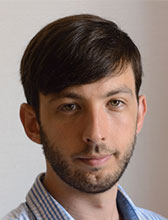
Co-sponsored by:
The Psychological Effects of Poverty on Investments in Children's Human Capital
Do poor parents respond inefficiently to future returns on investments, even when they would have the financial means to invest optimally? Endowing a sample of parents of high-school students in Brazil with resources to invest in an educational program, we document a 35.7% SES gap in investment decisions. Combining multiple experiments, we document that (1) prior experience with the program closes the gap in willingness to invest between high- and low-SES parents, but (2) financial worries reopen 2/3 of that gap. We further show that effects are consistent with financial worries leading poor parents to respond to small but immediate returns as if they were large, and to large but future returns as if they were small.
Guilherme Lichand, Assistant Professorship for Child Well-Being and Development, University of Zurich
I am an Assistant Professor of Economics of Child Well-being and Development at the University of Zurich, and Chairman at CCWD. My research is primarily about why, in developing countries, parents often fail to invest in (and sometimes even destroy) children's human capital. I hold a PhD in Political Economy and Government from Harvard University. I have been acknowledged by the Schwab Foundation and Folha de São Paulo as Brazil's top-10 social entrepreneur of the year (post-COVID legacy), in 2020, and by MIT Technology Review as Brazil's top social innovator among under-35 entrepreneurs, in 2014. I am also a social innovation specialist at the World Economic Forum Expert Network. I am a co-founder and chairman at Movva, which powers nudgebots to improve learning outcomes among low-income students across Latin America and Sub-Saharan Africa.



